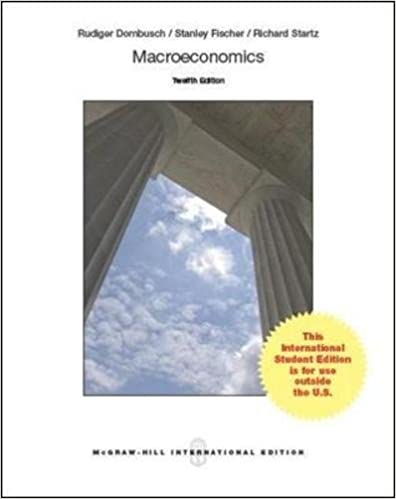
Macroeconomics 12th Edition by Rudiger Dornbusch ,Stanley Fischer,Richard Startz
Edition 12ISBN: 978-1259070969
Macroeconomics 12th Edition by Rudiger Dornbusch ,Stanley Fischer,Richard Startz
Edition 12ISBN: 978-1259070969 Exercise 11
Suppose Congress decides to reduce transfer payments (such as welfare) but to increase government purchases of goods and services by an equal amount. That is, it undertakes a change in fiscal policy such that

a. Would you expect equilibrium income to rise or fall as a result of this change Why Check your answer with the following example: Suppose that, initially, c =.8, t =.25, and Y 0 = 600. Now let

b. Find the change in equilibrium income,

c. What is the change in the budget surplus,
 Why has BS changed
Why has BS changed

a. Would you expect equilibrium income to rise or fall as a result of this change Why Check your answer with the following example: Suppose that, initially, c =.8, t =.25, and Y 0 = 600. Now let

b. Find the change in equilibrium income,

c. What is the change in the budget surplus,
 Why has BS changed
Why has BS changedExplanation
The output of a closed economy is:
It ...
Macroeconomics 12th Edition by Rudiger Dornbusch ,Stanley Fischer,Richard Startz
Why don’t you like this exercise?
Other Minimum 8 character and maximum 255 character
Character 255


